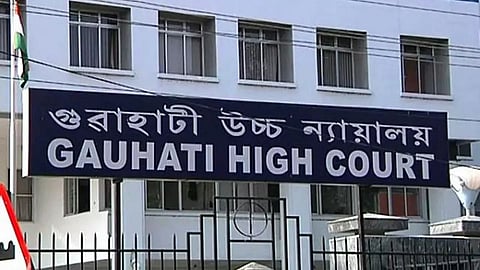
- Home
- Live Blog
- Breaking News
- Top Headlines
- Cities
- NE News
- Sentinel Media
- Sports
- Education
- Jobs

Staff Reporter
Guwahati: A public interest litigation (PIL) filed in the Gauhati High Court sought to challenge the state government’s decision to uplift the five indigenous Muslim communities of Assam without including the Muslims of Barak Valley, while challenging the validity of a welfare scheme based on religious identity.
The PIL includes a prayer to the high court to direct the Assam government not to create division among the people of Assam on the basis of language and religion.
The petitioner in a public interest litigation case no. PIL/1/2024 stated that in a cabinet meeting held on December 8, 2023, the state government recognized the five Muslim sub-groups that were suggested by the cabinet sub-committee as indigenous Muslims. The Assam cabinet also approved a socio-economic survey of the state’s indigenous Muslim population.
It should be mentioned here that the Assam cabinet approved a socio-economic survey of the state’s indigenous Muslim population. The state government recognized five communities as indigenous Assamese Muslims, which are: (i) Syed; (ii) Goriya; (iii) Moriya; (iv) Desi; and (v) Julha. The survey was aimed at providing a guide to the government on how to take suitable measures aimed at the comprehensive socio-political and educational uplift of the state’s indigenous minorities.
The instant PIL stated that, indigenous Muslim people of South Assam or Barak Valley have not been included in the list of indigenous Muslims. Pointing out that there are two enactments in force to identify illegal migrants and Indian citizens, namely the Foreigners Act of 1946 and the Citizenship Act of 1955, the petitioner said there is no provision in the statute to define indigenous Indian citizens and immigrant citizens. It also stated that the government cannot implement any welfare scheme on the basis of religious identity and also cannot provide any special rights and privileges to certain religious sub-groups, except the rights envisaged under Articles 25 to 30 of the Constitution of India.
The PIL also stated that mixing ethnic identity with religion is also unconstitutional.
The methodology used to determine the indigenous status of the five communities named above was also called into question. It was also sought to provide a historical backdrop for the Muslims in Barak Valley, equating their settlement on a par with the Muslims in the Brahmaputra Valley during Ahom rule.
The HC listened to the arguments made by the petitioner and decided to keep the issue of the maintainability of the PIL open while issuing notice to the state government. It will hear the case again in four weeks’ time.
Also Watch: